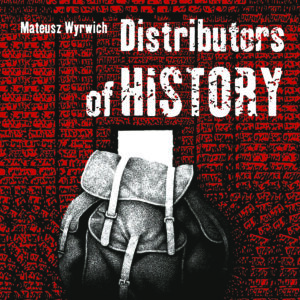The pages of this book tell the story of but a few dozen out of several million. A few dozen out of several hundred, and eventually – out of the tens of thousands of Solidarity members whose fight for a free Poland against the communists lasted until 1989. They all took part in what one of the characters presented here describes as the first bloodless uprising. This is only partially true, as the communists killed at least a hundred people during the martial law period. Some have monuments in their honour, while others live on only in the memories of their loved ones.
These stories about living witnesses of history are based on conversations with heroes who fought for our independence. They are also based on documents which now lie in archives, but were originally created by those who oppressed the men and women of Solidarity: the civilian and military henchmen of the communist regime – those who served the People’s Republic of Poland (PRL), a puppet state under the yoke of Soviet imperialism.
In this book, we meet people who – and I need to stress this – are usually completely unknown, or are known only within their own communities. The passage of time has caused their contributions to fall into obscurity, only to be rediscovered on occasion by someone with a passion for local history. They would never describe themselves as heroes, and so they are forgotten, passing away in complete anonymity. On rare occasions, their deeds are discussed by their families. The time they spent working as part of the underground independence movement was time they could not spend with their loved ones. This sometimes led to families falling apart. Those who fought for Polish independence had to deal with hurtful questions from their relatives, spouses and parents – ‘Why do you even bother?’ At times, such questions could hurt a lot more than being beaten by a Security Service agent or being interned or imprisoned.
You could say that several of the characters presented here had successful careers in the early days of independent Poland. Serving as members of parliament or senators, usually for a single term, they would later become contributors to their communities, either as members of local governments or by establishing foundations supporting those workers who lost their jobs after the shock-therapy ‘reform’ introduced by Leszek Balcerowicz [Poland’s Finance Minister at the time]. They continued to work for the benefit of Poland and her national and economic sovereignty. Several former underground activists became businessmen in the Third Republic era. However, they never forgot that not everyone who fought for independence was able to make ends meet in the new reality. This is why they would often financially support those in need – proving that, for them, solidarity was a timeless idea.
Nearly every life story presented here could serve as a thriller film script. The accounts compiled in this book are a modern-day view of the sum of the underground independence movement, a review of the activities of the secret anti-communist resistance that existed from 1981 to 1989. It bears repeating that, in the Third Republic, the majority of these biographies have largely remained unknown and forgotten. It was not until the establishment of the Cross of Freedom and Solidarity in 2010 that they could emerge from the shadows of history.
Finding them was significantly easier thanks to the help of the heads of all regional branches of NSZZ ‘Solidarity’, for which I am grateful. It is thanks to them that hitherto unknown underground activists, whose contributions to Polish independence must not be ignored, could be discovered. This is good, as letting them languish in obscurity would mean yet another blank page in the history of Poland. I would also like to thank the editors in chief of Tygodnik Solidarność: Ewa Zarzycka, Krzysztof Świątek and Michał Ossowski. It is thanks to them that historical reports on the titular distributors of history could be published by Tygodnik Solidarność over the course of more than five years.
We often discuss the heroic deeds of various soldiers and participants in our national uprisings, including the Kościuszko, November and January Uprising, as well as the Warsaw Uprising of 1944. And justifiably so, as every armed uprising brought us one step closer towards independence, be it during the partition period, the German and Soviet occupation in World War II or in the years leading up to 1989. But those who fought using underground newspapers and books deserve the same treatment, regardless of whether they fought decades or centuries ago.
We know about our heroes of old because their stories have been passed down by our ancestors. To omit those thanks to whom Poland is now a free country would thus be a grave injustice.





